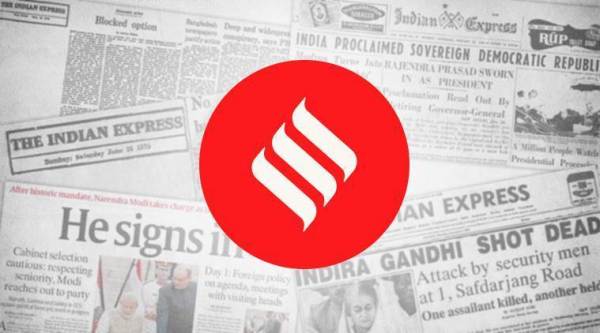Opinion Bully on campus
Fee hike is a symptom, as the government watches JNU administration turn on its own students.
 The most striking drawing also tells a story — a hunting scene in which the human figures are not completely human, but have animal attributes.
The most striking drawing also tells a story — a hunting scene in which the human figures are not completely human, but have animal attributes.  The JNU Act 1966, enshrines “social justice” as one of the university’s objectives.
The JNU Act 1966, enshrines “social justice” as one of the university’s objectives.
On Tuesday, Jawaharlal Nehru University’s (JNU) administration moved a contempt of court petition in Delhi High Court against the institution’s own students. The university authorities have drawn on a court order from August 2017, which “bans protests within 100 yards of JNU’s administrative block”. The petition is the latest in a series of antagonistic postures that have driven a wedge deeper between the university administration and its students, and thrown JNU into turmoil for nearly a month. The students are protesting against a hike in fees, which they claim is steep.
But, by all accounts, the anger and restlessness on campus is also stoked by the administration’s pattern of high-handedness. In this case, the fee hike was imposed without even a modicum of consultation with the student body. Then, to students worried about their educational prospects and careers, the JNU authorities have repeatedly given the message that their agitation will be treated as a law and order problem.
The JNU Act 1966, enshrines “social justice” as one of the university’s objectives. “The University shall endeavour to promote… social justice, secularism, national integration, democratic ways of life, international understanding and scientific approach to the problems of society,” it says. JNU’s deprivation points system, discontinued for research scholars in 2017, enabled many students from marginalised communities and backward regions to enter the university’s portals.
In a country beset with myriad oppressions of caste, gender, and increasingly, religion, the university’s classrooms, libraries, hostels, canteens and dhabas have been among the precious spaces where the young from disadvantaged sections can debate, discuss, disagree, and cultivate friendships with their peers from the more privileged strata of society. Around 40 per cent of students admitted to the university in 2017 had a parental income of less than Rs 12,000 per month, according to the university’s annual report for 2017-2018. It’s this egalitarian ideal and character of the university, the students believe, that will be imperiled by the increase in fees. As a report in this paper, last week showed, those likely to be hurt by the hike include those from families with an annual income of less than Rs 50,000, students from families that have lost their sole earning member, women graduates with working-class backgrounds.
Universities in democratic societies are the natural home for political discussion, provocative ideas, even dissent. But since 2016, it has seemed that the ruling dispensation has targeted the university, especially JNU, because of its reputation of being a bastion for the left-leaning. Through a variety of incursions in JNU, the BJP-led government has sent out the message that it will go after institutions it accuses of a “nationalism deficit”. The JNU administration and its vice-chancellor may have fallen in unresistingly with this project but the government must know that the apparent heavy-handedness with students makes it look, not strong and decisive, but like a bully.





